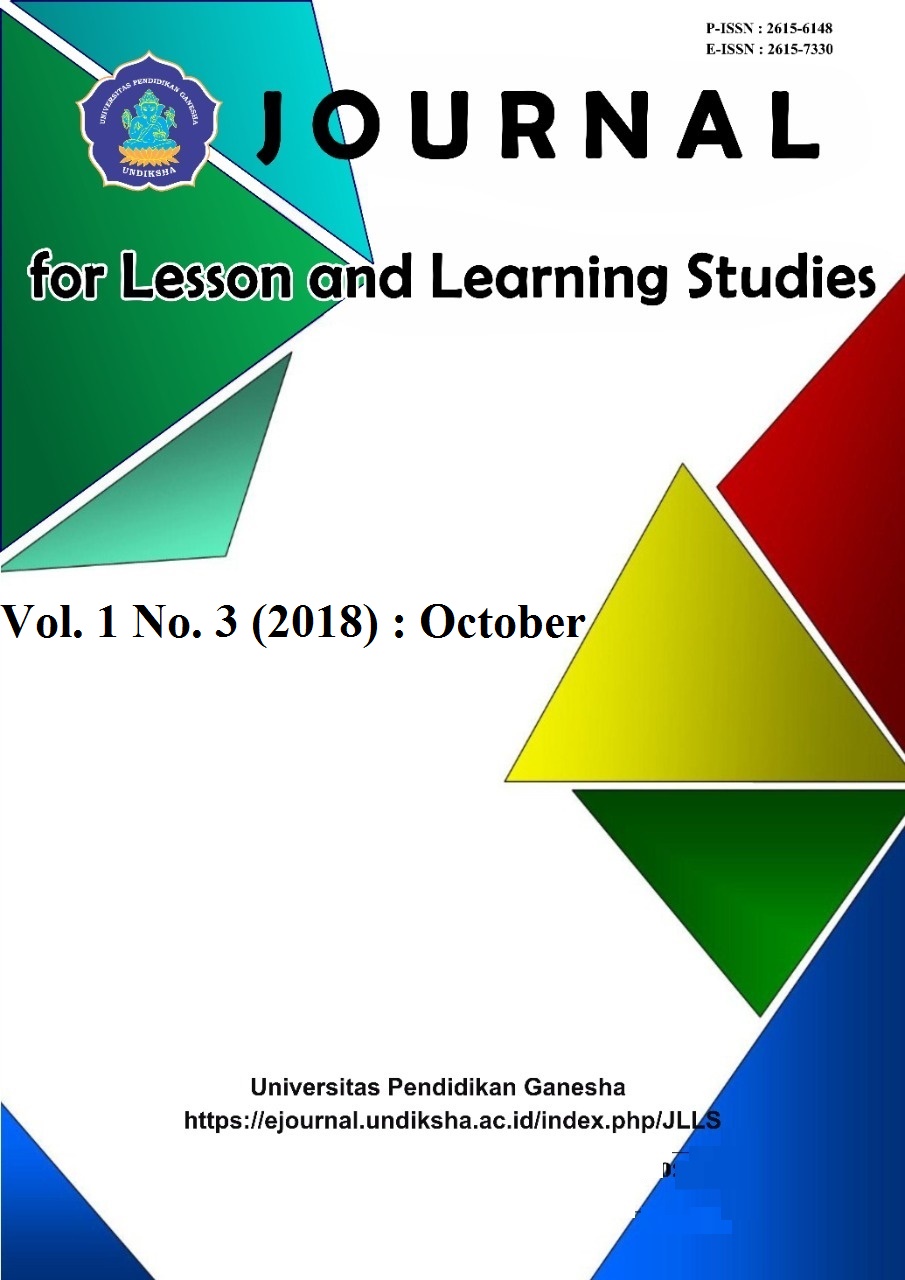EFEKTIFITAS MODEL DISCOVERY LEARNING DAN GUIDED DISCOVERY DITINJAU DARI KETRAMPILAN PEMECAHAN MASALAH MATEMATIKA TERHADAP HASIL BELAJAR KELAS 4 DABIN 2 DAN 3 KECAMATAN GODONG-GROBOGAN
DOI:
https://doi.org/10.23887/jlls.v1i3.15013Abstract
Penelitian ini adalah penelitian eksperimen. Tujuan penelitian untuk meningkatkan ketrampilan pemecahan masalah dan hasil belajar matematika kelas 4 SD Dabin 2 dan 3 kecamatan Godong-Grobogan menggunakan model pembelajaran Discovery Learning dan Guided Discovery. Sampel penelitian ini adalah kelas 4 SD Dabin 2 yang berjumlah 55 dan Dabin 3 berjumlah 62. Dalam hasil analisa dua tahap, yaitu tahap awal menggunakan nilai pretest dan analisa tahap akhir menggunakan nilai postest. Tahap awal dan akhir dihitung menggunakan uji normalitas, uji homogenitas, uji homogenitas koefisien regresi linear, dan uji ANCOVA. Berdasarkan uji ANCOVA TWO WAYS yang telah dilakukan terhadap nilai pretest dan posttest kelompok eksperimen 1 dan kelompok eksperimen 2 diperoleh hasil signifikansi/probabilitas 0,870 dan 0,395 atau > 0,05 maka H0 diterima dan Ha ditolak. Artinya tidak terdapat perbedaan ketrampilan pemecahan masalah dan hasil belajar matematika yang signifikan dalam menggunakan model pembelajaran Discovery Learning dan Guided Discovery pada siswa kelas 4 SD Dabin 2 dan Dabin 3 kecamatan Godong-Grobogan.
Downloads
Published
How to Cite
Issue
Section
License
Authors who publish with the Journal for Lesson and Learning Studies agree to the following terms:
- Authors retain copyright and grant the journal the right of first publication with the work simultaneously licensed under a Creative Commons Attribution License (CC BY-SA 4.0) that allows others to share the work with an acknowledgment of the work's authorship and initial publication in this journal.
- Authors are able to enter into separate, additional contractual arrangements for the non-exclusive distribution of the journal's published version of the work (e.g., post it to an institutional repository or publish it in a book), with an acknowledgment of its initial publication in this journal.
- Authors are permitted and encouraged to post their work online (e.g., in institutional repositories or on their website) prior to and during the submission process, as it can lead to productive exchanges, as well as earlier and greater citation of published work. (See The Effect of Open Access)




